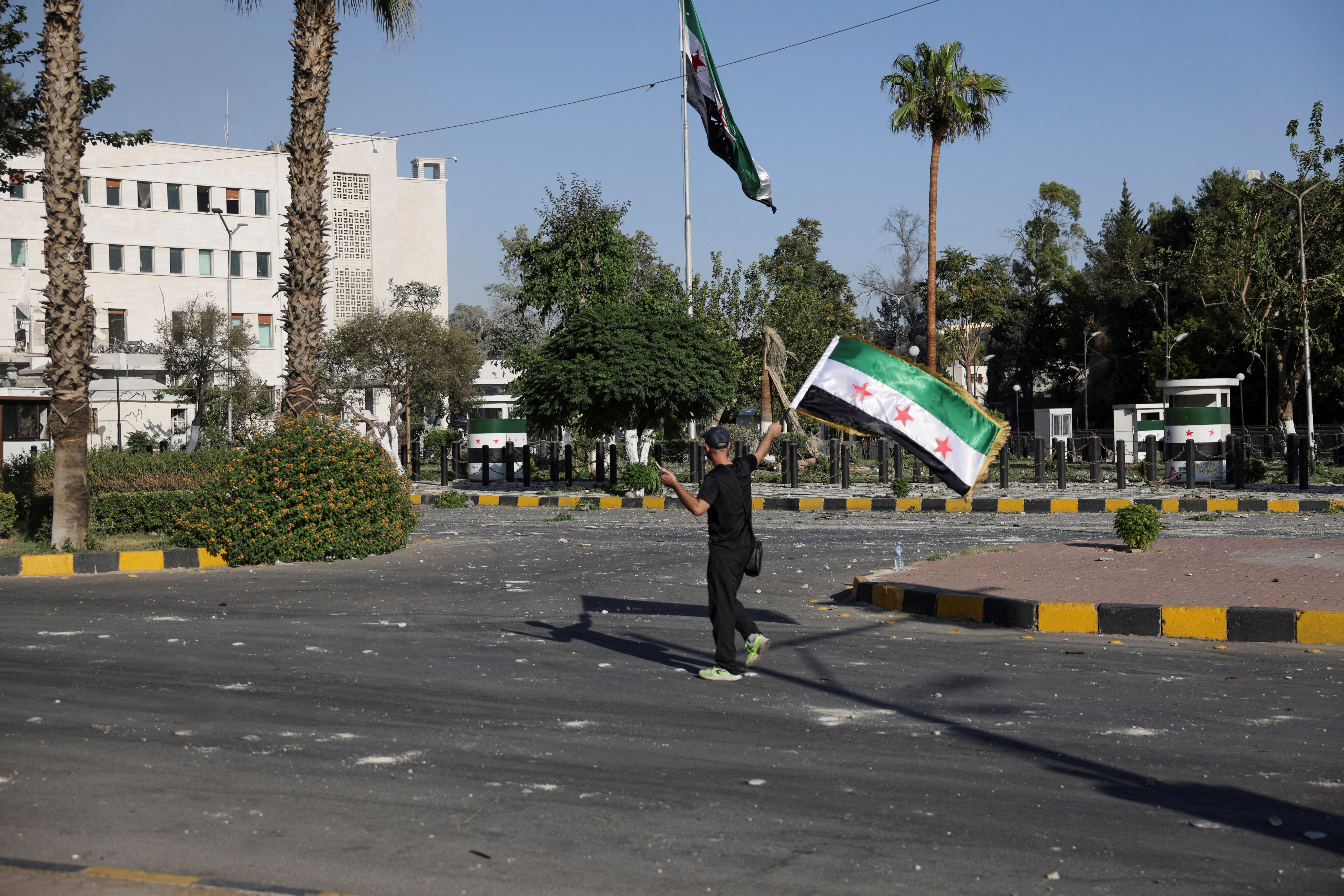US Companies Forge Ahead with Syria Energy Masterplan Following Sanctions Relief

In a significant policy shift, US-based firms Baker Hughes, Hunt Energy, and Argent LNG are poised to develop a comprehensive masterplan for Syria's oil and gas sectors. This development comes on the heels of an executive order by US President Donald Trump, formally lifting a series of sanctions against Syria, marking a potential turning point for the country's economic recovery.
Treasury Department Confirms Removal of Sanctioned Entities

The US Treasury Department has confirmed the removal of 518 Syrian individuals and entities from its sanctions list in direct response to President Trump's decree. This action underscores the administration's commitment to fostering a stable and unified Syria.
Syrian Government Welcomes the Decision

Syria's Minister of Foreign Affairs and Expatriates, Asaad Hassan al-Shaibani, has publicly welcomed President Trump's decision, describing it as a pivotal step towards the country's long-awaited reconstruction and economic recovery. Al-Shaibani believes the move will unlock opportunities for international engagement and investment in Syria.
Sanctions Remain on Key Individuals and Groups

Despite the broader lifting of sanctions, the Trump administration has clarified that restrictions will remain in place against specific entities, including Syrian President Bashar al-Assad and his associates, ISIL (ISIS), and Iran and its allies. This targeted approach reflects ongoing security concerns and the US government's commitment to preventing the resurgence of terrorist organizations in the region.
Review of Caesar Act Sanctions Underway

The US government is also initiating a review process to determine whether conditions have been met to remove sanctions imposed under the Caesar Act. This act, enacted to hold the Syrian government accountable for human rights abuses, has been a significant impediment to Syria's economic recovery. The review process will assess whether the Syrian government has taken sufficient steps to address these concerns.
Status of Interim Syrian President and Al-Nusra Front Under Reassessment

Secretary of State Marco Rubio has been directed to reassess the designations of interim Syrian President Ahmed al-Sharaa as a "Specially Designated Global Terrorist" and his group, al-Nusra Front (now Hayat Tahrir al-Sham or HTS), as a "foreign terrorist" organization. This reassessment reflects the evolving dynamics of the Syrian conflict and the need to re-evaluate the designations of various actors.
Key Articles Highlight Developments

News of the US firms developing the energy masterplan and the formal lifting of sanctions has been widely reported within the last 7 days (as of July 19, 2025), with key articles appearing around July 18 and July 19, 2025.
Trump Previously Hinted at Sanctions Relief

President Trump had previously signaled intentions for sanctions relief for Syria during a visit to the Middle East in May 2025, setting the stage for this recent policy shift.
Sanctions Predate Civil War
Many sanctions against Syria predated the 2011 civil war, significantly impacting the country's economy and hindering reconstruction efforts. The lifting of these sanctions is intended to alleviate these burdens and facilitate Syria's recovery.
Goal: A Stable and Unified Syria
The lifting of sanctions aims to foster a stable, unified, and peaceful Syria, free from terrorist organizations, and to ensure the security of its diverse religious and ethnic minorities. This policy shift reflects the US government's desire to promote regional stability and address humanitarian concerns.
Stakeholders in the Policy Shift
Key stakeholders involved in this policy shift include US firms Baker Hughes, Hunt Energy, and Argent LNG, which are engaged in developing Syria's energy masterplan. The US government, led by President Donald Trump and the US Department of the Treasury, is driving the policy change. The Syrian government, represented by Minister of Foreign Affairs and Expatriates Asaad Hassan al-Shaibani, is welcoming the US decision. US Legislators, including Democratic US Congresswoman Ilhan Omar and Republican lawmaker Anna Paulina Luna, have also played a role in advocating for sanctions relief.
Designated Entities Remain Sanctioned
Sanctions continue to target figures like Bashar al-Assad, as well as groups such as ISIL (ISIS) and allies of Iran, reflecting ongoing security concerns. The status of Ahmed al-Sharaa and HTS is currently under review.
Statements from Key Figures
"The United States is committed to supporting a Syria that is stable, unified, and at peace with itself and its neighbours. A united Syria that does not offer a safe haven for terrorist organisations and ensures the security of its religious and ethnic minorities will support regional security and prosperity," stated President Donald Trump.
Syrian Minister Anticipates Economic Recovery
"It will open the door of long-awaited reconstruction and development... It will lift the obstacle against economic recovery and open the country to the international community," said Asaad Hassan al-Shaibani, Syrian Minister of Foreign Affairs and Expatriates.
Treasury Confirms Entity Removal
The US Treasury Department confirmed the removal of 518 Syrian individuals and entities from its sanctions list, marking a significant step in the implementation of the policy shift.
Anticipation for Economic Recovery
The Syrian Minister's statement indicates positive anticipation for economic recovery and increased international engagement, suggesting a potential turning point for the country's future.
Complexities Remain
Complexities remain due to the continued sanctions on certain individuals and groups, as well as ongoing reviews of other sanctions, indicating that the path to full normalization and reconstruction is still intricate. Reports also suggest tensions between the Trump administration and Israel over Syria, potentially adding another layer of complexity to the situation.